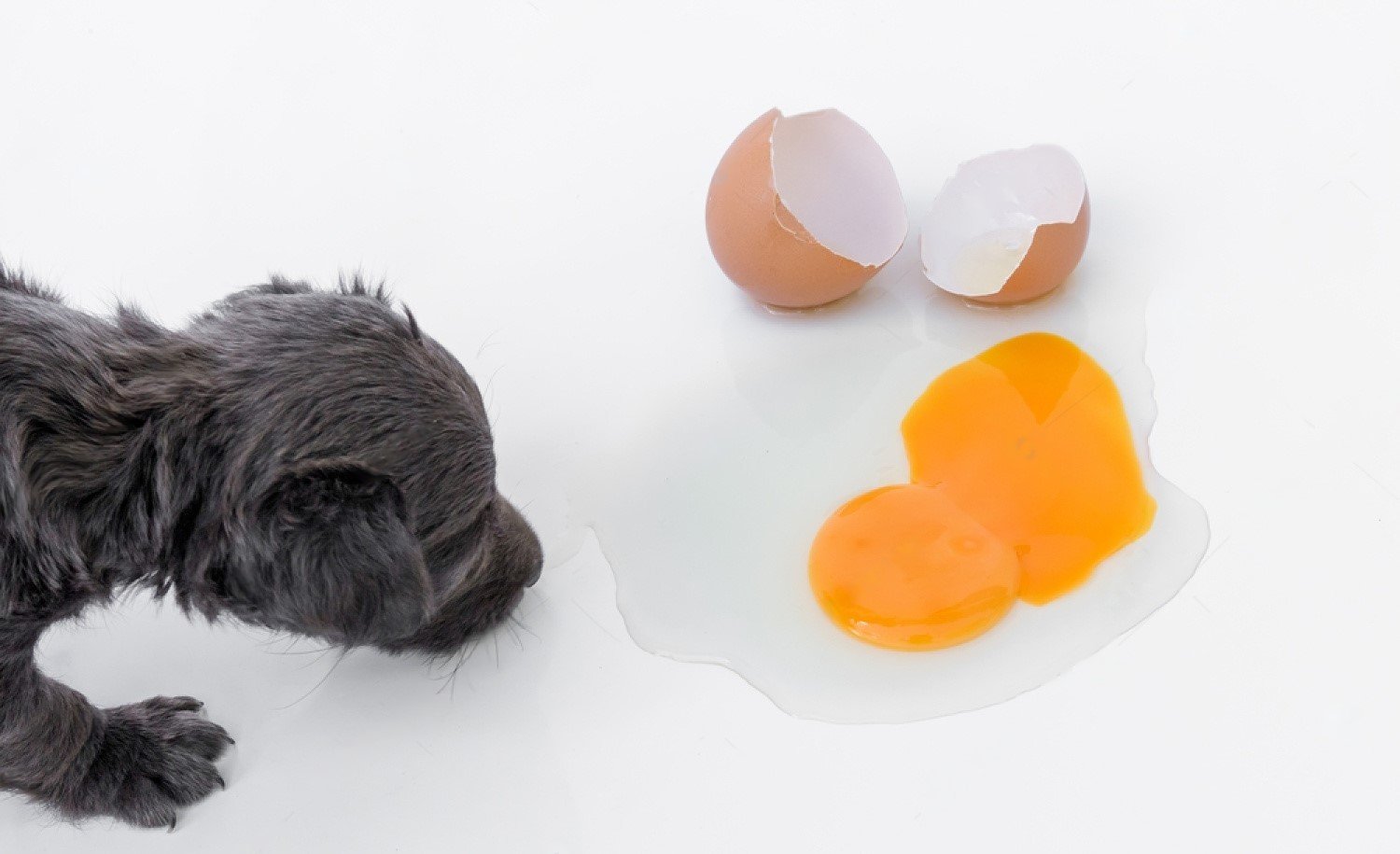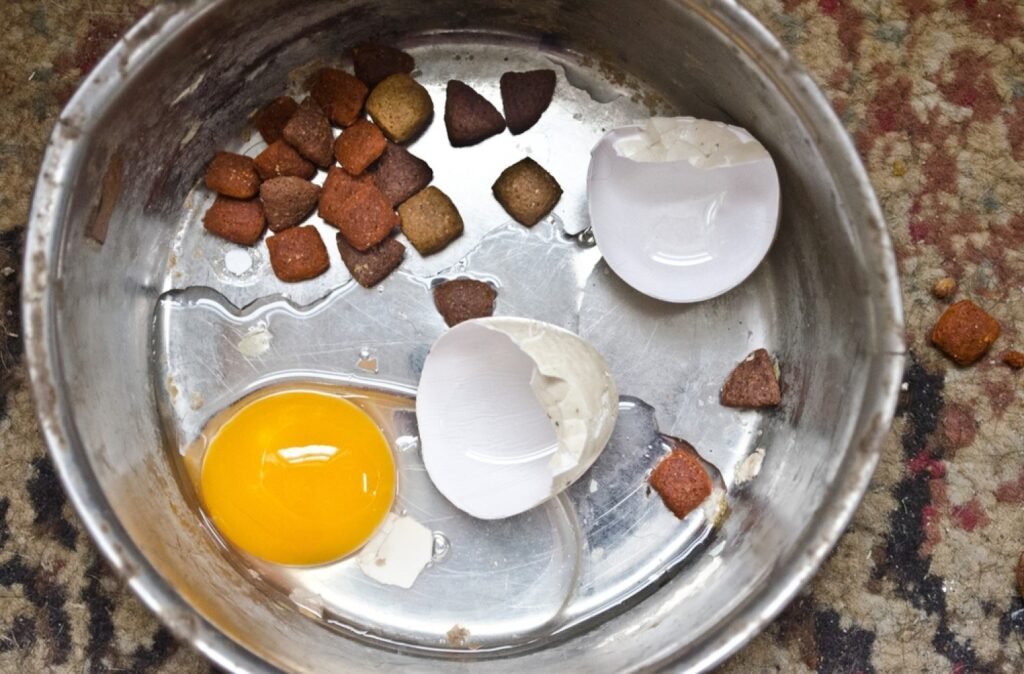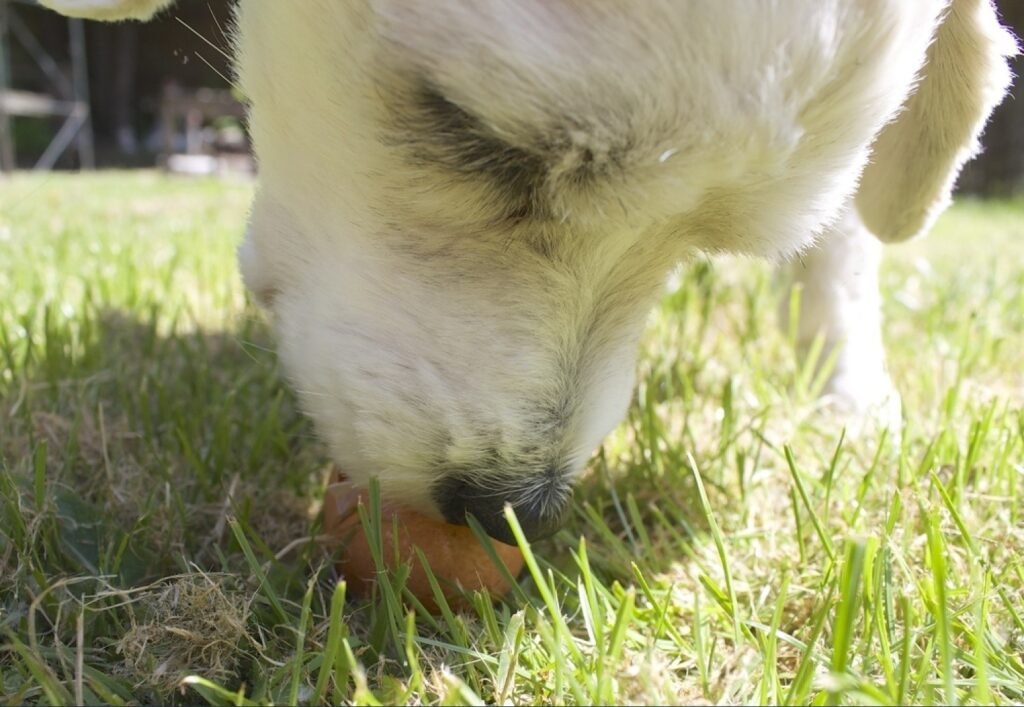
We love our dogs like family, and naturally, we want to give them the best. That includes finding ways to boost their health with nutritious treats, sometimes even straight from our own kitchens! But when it comes to sharing our food, it’s important to know what’s safe and what’s not. Take eggshells, for example. Can dogs eat eggshells? It might seem strange, but the answer is actually yes! While we might toss those shells in the trash, they can be a surprisingly beneficial supplement for our canine companions when prepared correctly. Eggshells are packed with calcium and other essential minerals that can contribute to stronger bones, healthier teeth, and even improved joint function in our furry friends.

Eggshells are a surprisingly rich source of calcium, a mineral that plays a vital role in a dog’s overall health. Just like in humans, calcium is essential for building and maintaining strong bones and teeth. But its importance goes beyond that. Calcium is crucial for proper muscle function, nerve transmission, and even blood clotting. What makes eggshells particularly beneficial is the high bioavailability of their calcium. This means that the calcium in eggshells is easily absorbed and utilized by your dog’s body, making it an efficient way to supplement their diet. In fact, a single eggshell can provide approximately 2,000 mg of calcium, which is a significant amount for a dog.
Aside from calcium, eggshells contain several other minerals that add a nutritional edge to your dog’s diet. Trace amounts of magnesium, phosphorus, and potassium work together to support healthy bones, muscles, and nerves. Eggshells also contain collagen and hyaluronic acid, which promote skin elasticity and joint lubrication. Even the proteins in eggshell membranes can add to a dog’s nutrition, particularly by supporting tissue repair and immune system health. This nutrient mix provides a natural, balanced way to support your dog’s overall well-being when fed in moderation.
Eggshell powder has become popular as a supplement for dogs dealing with arthritis or other joint issues, and for a good reason. The inner lining of eggshells, known as the eggshell membrane, is rich in joint-friendly compounds like glucosamine, chondroitin, and collagen. These nutrients work together to alleviate joint pain and improve mobility by supporting cartilage regeneration and reducing inflammation. Dogs with arthritis or age-related joint stiffness may benefit from small amounts of eggshell powder in their diet, helping them stay active and comfortable without relying on synthetic supplements.
Before you start sprinkling eggshells on your dog’s food, it’s crucial to prepare them correctly. First, consider the source. Whenever possible, opt for eggshells from organic, free-range chickens. These are less likely to contain harmful residues from pesticides or antibiotics.
Once you have your eggshells, thorough cleaning is essential. Rinse them well under hot water to remove any egg residue or debris. To further minimize the risk of bacterial contamination, boil the eggshells for a few minutes. This step is especially important, as raw eggshells can carry the risk of Salmonella, which can be harmful to both you and your dog.
Next, the eggshells need to be thoroughly dried. You can air dry them or bake them at a low temperature (around 200°F or 93°C) until they are completely dry and brittle. This ensures that they grind easily and prevents any mold growth during storage.
Finally, it’s time to grind. Use a coffee grinder, spice grinder, or even a mortar and pestle to grind the dried eggshells into a fine powder. The finer the powder, the better, as it will be easier for your dog to digest and absorb the nutrients. Avoid feeding large pieces of eggshells, as these can pose a choking hazard.
Once you have your eggshell powder, store it in an airtight container in a cool, dry place. This will help maintain its freshness and prevent moisture from clumping the powder.
While specific research on eggshell supplementation for dogs is limited, organizations like the American Kennel Club (AKC) acknowledge the potential benefits of calcium supplementation for dogs, particularly for those with specific dietary needs or conditions. Always consult your veterinarian for personalized advice on whether eggshell supplementation is appropriate for your dog and to determine the correct dosage.
 Dosage: How Much Eggshell Powder Can Be Feeded Your Dog?
Dosage: How Much Eggshell Powder Can Be Feeded Your Dog?When adding eggshell powder to your dog’s diet, it’s essential to keep portions controlled to avoid calcium imbalances. As a general guideline, 1/2 teaspoon of finely ground eggshell powder provides roughly 800 mg of calcium, which is typically enough for a medium-sized dog’s daily calcium requirement if they aren’t already receiving calcium from other sources. For smaller dogs, 1/4 teaspoon or less may be adequate, while larger dogs may benefit from around 3/4 teaspoon per day. It’s crucial to consider any additional calcium in your dog’s diet to avoid over-supplementation.
Since every dog’s nutritional needs vary based on factors like age, health, and diet, it’s best to consult a veterinarian before adding eggshell powder to your dog’s routine. A vet can provide guidance on the ideal dosage for your dog’s size, activity level, and specific health requirements, especially if your dog is a puppy, senior, or has a medical condition requiring dietary management.
Overfeeding eggshell powder or any calcium supplement can lead to health concerns, including kidney strain, bone abnormalities, and interference with the absorption of other minerals like phosphorus. To avoid these risks, always use eggshell powder in moderation, following your vet’s recommendations, and ensure it complements a balanced diet.
Eggshells can be a beneficial calcium source for dogs, but feeding them improperly poses risks. Raw eggshells may carry bacteria like salmonella, which can cause digestive issues, especially in puppies or immunocompromised dogs. Additionally, whole eggshells can be a choking hazard or cause irritation if they splinter. Too much calcium from eggshells can also lead to dietary imbalances, affecting the absorption of other essential minerals.
To ensure safety, it’s crucial to prepare eggshells properly. Rinse them well, bake at 300°F for 10 minutes to eliminate bacteria, and grind them into a fine powder to minimize choking risks and make the calcium more digestible. With the right preparation, eggshells can offer safe, natural supplementation for dogs in moderation.
Resources
Our PopularArticle